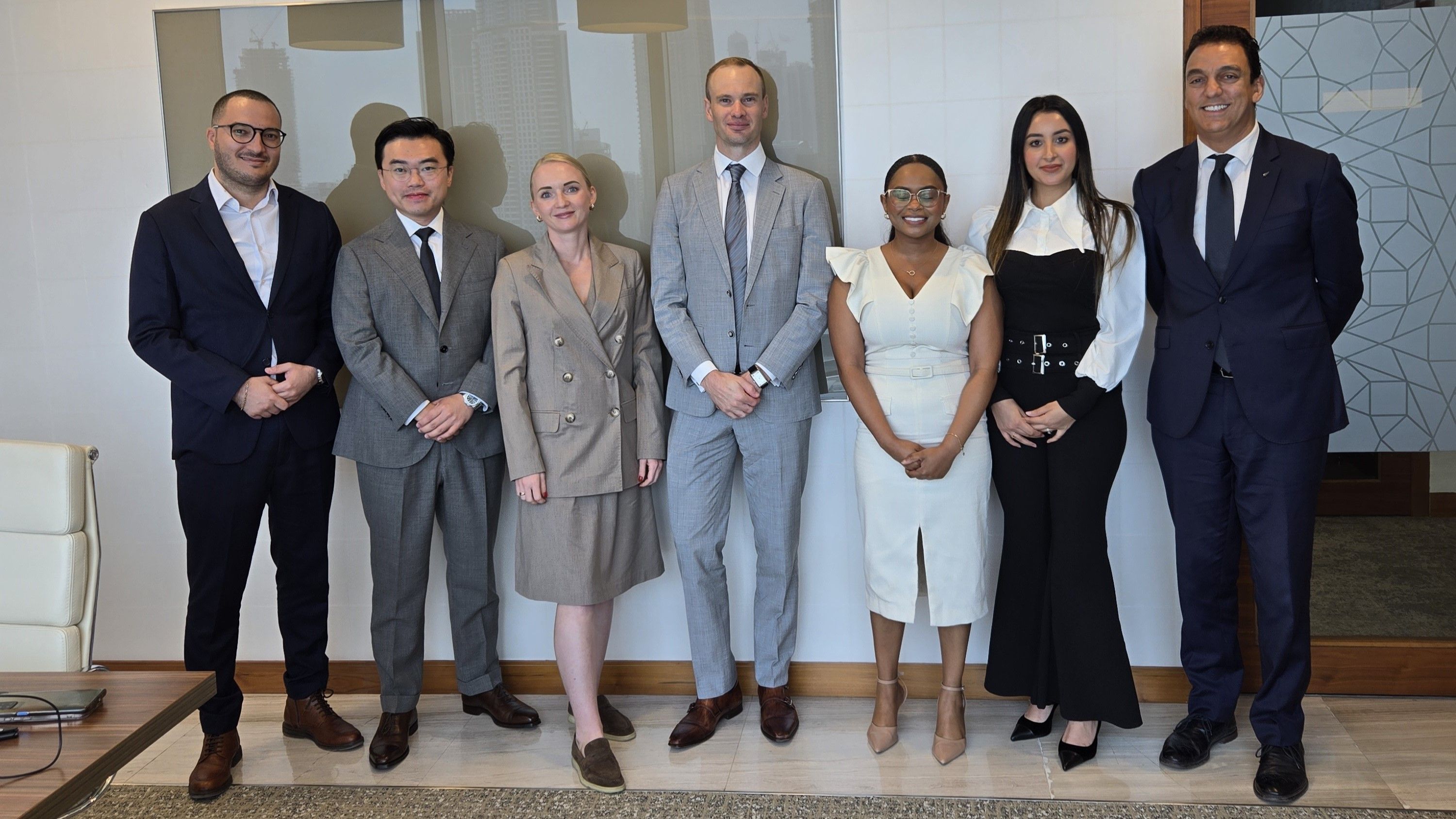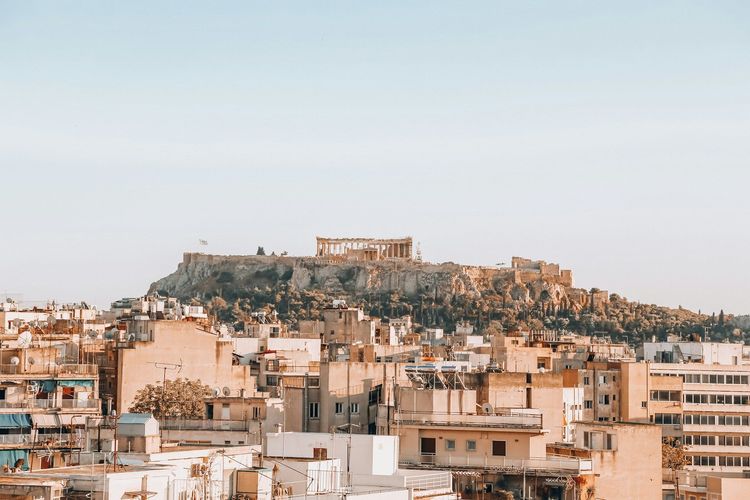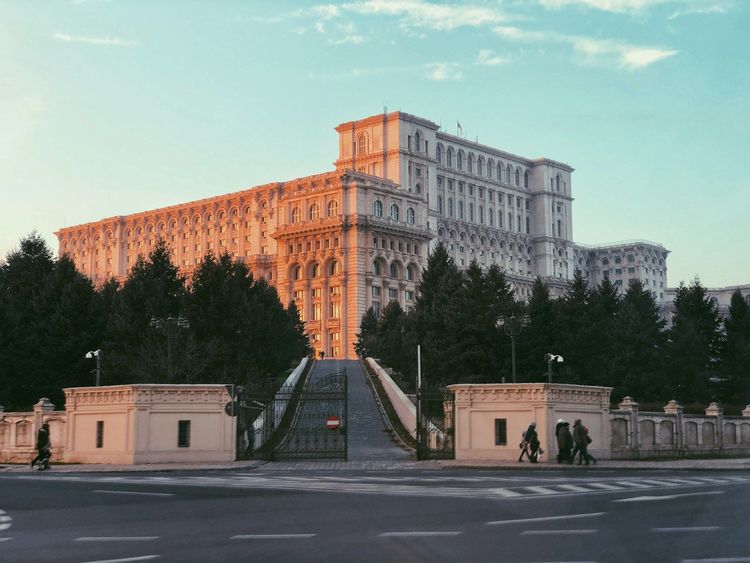— Good morning, Mister Edward. Welcome to our office, One World Migration. It's a great pleasure to host you here today. I know that you've come a long way, all the way from New Zealand, and I know you are running a big new program, which we are really excited about. Can you please give us a few words of an overall explanation about this program that was launched? We know that you did a lot of work to implement this program.
— Thank you, Anastasia, for having me here as well. It's a pleasure to be working with you. I'm really excited about the Nauru program because of what the program is trying to achieve for the government of Nauru. So the program is designed to raise funds for the government of Nauru to help them to address some of the economic and climate resilience challenges. They are the world's fourth most vulnerable climate country, and the funds that are raised through the program will make a material impact on the future of the country.
— You just mentioned the climate challenges, where the money will go to, to the fund. Can you tell me about this, what kind of challenges, if you can tell in a few words?
— Yes, absolutely. So, 90% of the residents in Nauru live at low-lying coastal areas, they live at sea level. And with rising sea level, their homes are at risk of flooding. So Nauru are embarking on a project to relocate 90% of their residents to the top side of their island. They are planning to build entirely new communities that are sustainable, environmentally friendly. With that they need all of the supporting infrastructure around energy security, water security, waste management. And everything that goes with building a new community. So it's a highly ambitious project and the citizenship program will help to generate some of the funds that are needed to deliver the project. It's a very ambitious project, but very exciting and it will have a material impact on the people.
— Thank you. This is important because everyone's talking about the climate investment and challenges, but nobody understands. And you know that we already working and the whole world is working with the standard citizenship by investment programs, it's very famous in the Caribbean, in Oceania, in the European Union. What can you tell about your program? What are the key benefits your program offers to high-net-worth families looking for a second citizenship?
— Well, I think the first thing that's important for your clients to understand is, again, the purpose of the program and the impact that the funds raised will have on an entire country. So your clients have the ability to have a material impact on the future of the people of Nauru. And for many people, that's quite a compelling reason to be involved in the process.
And then, of course, you get an alternative or secondary citizenship as part of that contribution. So in terms of the programme benefits, we have visa-free access to 88 countries, including the United Kingdom, the UAE, Singapore, Hong Kong, and many others. In terms of being able to bring your family members as part of the application, you can include parents, grandparents, children, grandchildren, as well as siblings, subject to some conditions.
So we think this is highly attractive for many clients. We have a very fast processing time as well of three to four months, which is very important for clients. So while we are a new program, we are still operating very efficiently, and there are many benefits.
And then, of course, from a pricing perspective, while we recognize that the Visa Free Access may not be as competitive as some of the other programs, we have priced the program accordingly.
— Is the government of Nauru making any work towards the European Union visa-free agreement?
— The government of Nauru are actively engaging with other governments to improve the visa-free access, whether the European Union will be achievable or not, is yet to be determined.
— Okay. You just mentioned about the family composition, parents, grandparents, but what about residing in the country? So, for example, some people, especially when they retire, want to invest in the country, and they're dreaming about island life.
What about this? Can you just tell a few words about the lifestyle? I know that you many times been in Nauru.
— I would describe it as quite a simple lifestyle, but whenever I visit the island, I feel very peaceful. You feel relaxed in the island lifestyle. In terms of infrastructure and development of the island, it still needs some work, so it might not be as modern as some other islands, and that is why a program such as this exists, is because it will help lift the development and modernize the country.
So maybe in a few years time, once the program has generated some success for the country, it will start to develop a little bit more. But for now I would describe it as quite a simple and peaceful existence.
There is a beautiful culture, they're a beautiful indigenous culture, they speak English and a native Nauruan language, the fishing is fantastic, I've never eaten better fresh tuna in my life and that includes comparing it to Japan, it's absolutely incredible, I think it's got one of the richest marine resources I've ever seen, so it's a simple lifestyle but a very peaceful and enjoyable lifestyle.
— From where are the closest flights to Nauru?
— To access Nauru you have to travel either from Brisbane in Australia or from Fiji.
— And what about the consulates?
— There is a consulate in Australia, and they have recently opened an embassy in China that I am aware of.
— How long is the validity of the Nauruan passport — is it five or ten years?
— Ten years. Depending on age.
— If it's a child, it's five years, right?
— Yes.
— In the future if a family wants to renew their passport, they can go straight to a consulate or to license agent, correct?
— Or through our office as well.
— One of the last questions. We heard that the government of Nauru restricted a few nationalities, including Russia, Belarus, Afghanistan, Sudan, and Iran. We understand there are some political restrictions. Could you clarify: are Russian or Belarusian nationals eligible, particularly those who also hold other passports? For example, if a Russian or Belarusian person was born in these countries but lived all their life in the U.S. and has a U.S. passport, are they eligible to apply? With another restricted list, like Sudan, Afghanistan, Iran — if a person was also just born in these countries, but they have lived all their lives in the U.S. or Europe, and their source of funds is from those regions, would they be considered eligible?
— Currently, there are a number of countries where we won't accept applicants if they have a citizenship or residency in those countries, regardless of whether they have multiple citizenships. So, in this scenario, you explained that possibly, a Russian or Iranian who might not have lived there since they were a child and has secondary citizenship, they still would not be eligible at this point in time.
There are some exceptions, for example, Afghanistan citizens, they would be eligible to apply if they hadn't lived there for over 10 years and no longer had any financial ties to Afghanistan.
We are continually looking at our policies and our country risk, and this is something that we will continually assess, so if that situation were to change in the future, then we will, of course, decide what to do.
— Thank you so much. I think everyone is worried about it. There is a question about the long-term vision for this Nauru program. From this perspective - when you created this program, it was for the exact period of time until you’ll have enough funds for the goals, or you have a long-term vision and you're planning to run this program for many years after?
— Well, the project that I described to you earlier, that the Nauru government is embarking on is ambitious and ambitious is also expensive. So, I would foresee the program running for 5−7 years at a minimum, but I see no reason why the program could not continue for the foreseeable future.
— About 5−7 years, you just mentioned. Let's see if in 5−7 years the program will close. We have a lot of news from some countries where the passport is revoked or re-announced. Any chances for investors who invest in this program in the future that they can lose the citizenship? Or, because they get a certificate of naturalization, they have exactly the same rights as the local people, and there is no way that they can lose their citizenship in the country?
— There are, in the Citizenship Act itself, clauses that do provide for revocation of citizenship, but these are under certain circumstances, so it is not just at the whim of the country; there need to be certain legal conditions that are met, for example, if they commit a criminal act. And these controls are important for the country, for them to protect themselves, but they also need to be designed in a way that is suitable for the client. So, provided that there is nothing that is done illegally and that contradicts the Act, then there shouldn't be a reason to have the passport removed.
— Thank you so much for your time, it was fantastic.
— You're welcome, Anastasia, and it's an absolute pleasure to be working with such a professional agency.
If you're considering applying through the Nauru Citizenship by Investment Program, don’t hesitate to contact us at One World Migration. As a licensed agent, we provide direct, reliable access to the program and ensure full compliance with all official requirements. Our team will support you at every stage — from consultation to approval — making your path to citizenship smooth and secure.



